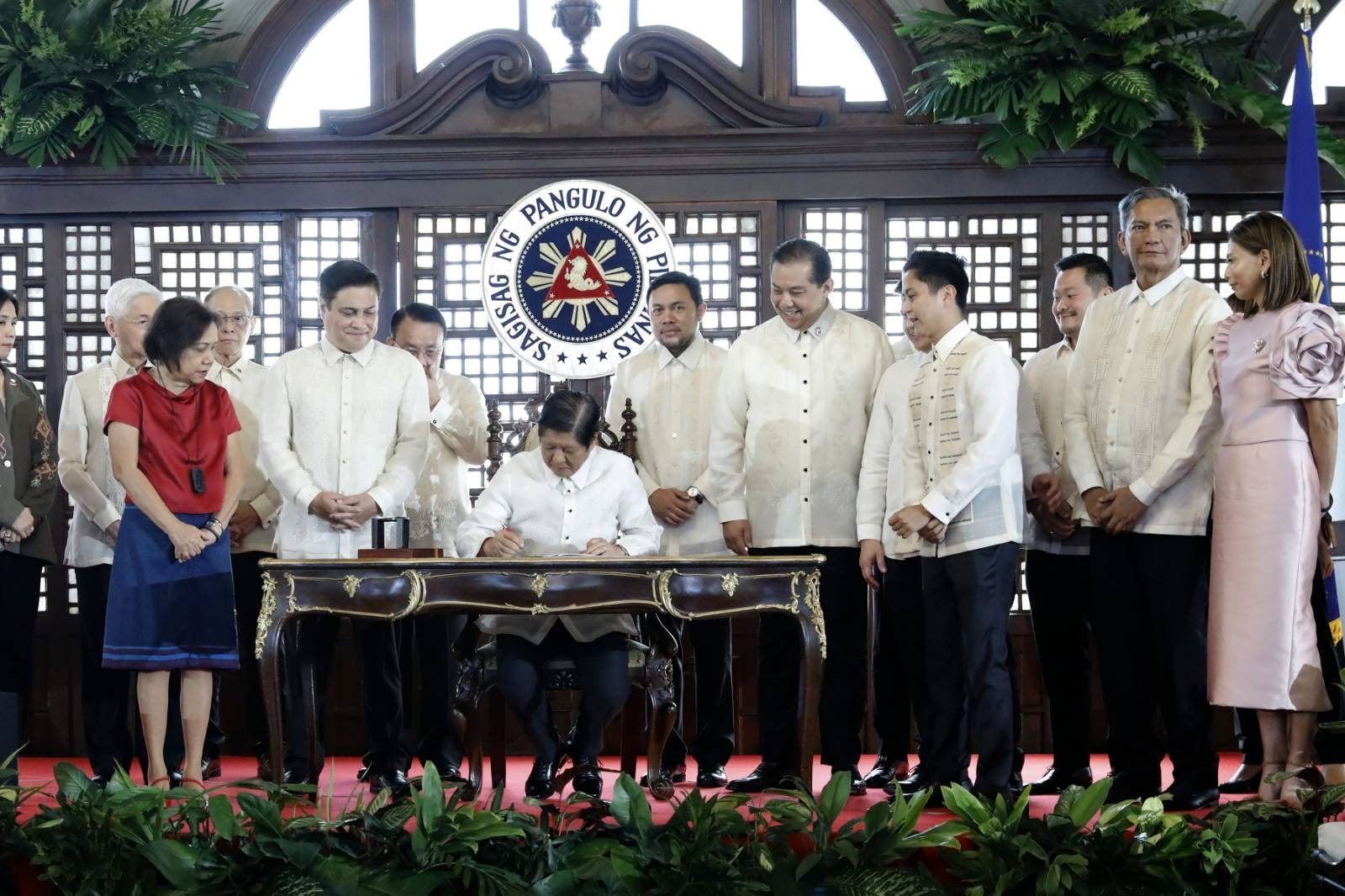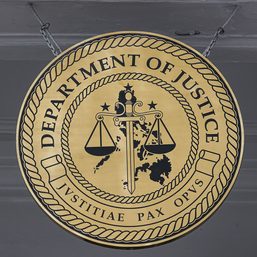SUMMARY
This is AI generated summarization, which may have errors. For context, always refer to the full article.

MANILA, Philippines – Less than six months after he first explicitly endorsed what was, even then, a controversial sovereign wealth fund, President Ferdinand Marcos Jr. on Tuesday, July 18, signed a law creating the Maharlika Investment Fund (MIF).
“The Maharlika Investment Fund is a bold step towards our country’s meaningful economic transformation. Just as we are recovering from the adverse effects of the pandemic, we are now ready to enter a new age of sustainable progress, robust stability, and broad-based empowerment,” Marcos said in his speech at the signing of the administration measure.
“For the first time in the history of the Philippines, we now have a sovereign wealth fund designed to drive economic development,” he added.
Marcos signed the measure more than a month after it was passed by a Congress dominated by his allies on May 31.
The MIF, previously called the Maharlika Wealth Fund, is a sovereign wealth fund that would be used to invest in domestic and foreign corporate bonds, commercial real estate, and infrastructure projects, among others.
Marcos has been pitching the fund during his travels abroad, even “soft launching” it when he flew to Switzerland for the World Economic Form in January.
Allies, family, friends
Back in December 2022 – when the House was only deliberating on the measure and the Senate had not even tackled it – Marcos defended the proposed wealth fund, claiming it would be “advantageous” to the Philippines.
By mid-December, before going on break for the holidays, the House – headed by Marcos’ cousin, Speaker Martin Romualdez – passed the administration measure. Marcos certified the bill as urgent, meaning it could pass through Batasan faster, leaving lawmakers with less time to scrutinize it.
The Senate, also dominated by a Marcos-allied “supermajority,” took longer to deliberate on the measure but also passed the measure after Marcos certified it as urgent.
Since the House adopted the Senate version of the measure, the bill spent practically no time at the bicameral conference committee level, breezing through the 19th Congress.
The idea for the Maharlika fund came from Malacañang itself, although Marcos curiously did not mention it during his first State of the Nation Address, when presidents typically spell out their priority legislation.
Marcos was also quiet about the controversial measure for weeks, even as allies and alter-egos – including relatives in Congress – touted it as his pet proposal. The bill’s main authors in the House include Romualdez, the Speaker’s wife Tingog Representative Yedda Romualdez, and Marcos’ eldest son, Ilocos Norte 1st District Representative Sandro Marcos.
House to Senate to Malacañang
The newly-signed law bears marked differences from the initial proposal filed by Marcos’ relatives in the House. The Senate version explicitly bars the Social Security System (SSS), Government Service Insurance System (GSIS), Philippine Health Insurance Corporation, Pag-IBIG, Overseas Workers Welfare Administration, Philippine Veterans Affairs Office, and Home Development Mutual Fund from investing in the MIF.
Original versions of the House proposal specified that seed money for the fund would come from the GSIS and SSS, government institutions that manage the pensions of workers in government and the private sector.
The Senate version also states that the Bangko Sentral ng Pilipinas will contribute 100% of its remittances during the first and second year of the Maharlika fund’s establishment rather than being required to continue remitting its dividends until the national government’s P50 billion contribution is fully paid up. This would limit the impact to the BSP’s capital build-up.
Seed capital for the fund will be sourced from the Land Bank of the Philippines (P50 billion), Development Bank of the Philippines (P25 billion), and the national government (P50 billion). Landbank and DBP will fully pay for their contribution upon the creation of the fund, while the government’s P50 billion is only subscribed, which means they can pay any time.
Still, criticism lingers over the Maharlika fund.
Around the world, most sovereign funds source their seed money from budget surplus or excess in state assets, such as oil and other natural resources. Critics of the bill have pointed out that the Philippines has none of these surplus funds.
The potential for corruption and mismanagement have also been a concern, although allies have insisted that the final version includes safeguards, including a provision that states bonds issued under the fund would not be guaranteed by the government.
The 19th Congress passed the law just before it went on a months-long break. Session resumes in end-July, in time for Marcos’ second SONA, during which the Maharlika Investment Fund is expected to be mentioned as a key accomplishment. – With a report from Bonz Magsambol/Rappler.com
1 comment
How does this make you feel?

![[In This Economy] Marcos’ POGO ban is popular, but will it work?](https://www.rappler.com/tachyon/2024/07/thought-leaders-marcos-pogo-ban.jpg?resize=257%2C257&crop=255px%2C0px%2C720px%2C720px)
![[Rappler Investigates] POGOs no-go as Typhoon Carina exits](https://www.rappler.com/tachyon/2024/07/newsletter-graphics-carina-pogo.jpg?resize=257%2C257&crop=424px%2C0px%2C1080px%2C1080px)



![[Just Saying] SONA 2024: Some disturbing points](https://www.rappler.com/tachyon/2024/07/TL-marcos-sona-points-july-23-2024.jpg?resize=257%2C257&crop=335px%2C0px%2C720px%2C720px)




Congratulations to our MIF Supporter Politicians and good luck and God bless to the Filipino People. Now, the Great Long March to Higher “Economic Development” with Greater and Improved Corruption has begun!